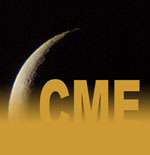Vol. 7, Issue No. 1: JANUARY 2008 – EXECUTIVE SUMMARYDTC User Fees Go PDUffft! OpEd by John Mack
It all started back in October/November 2005 at an FDA public hearing on DTC advertising (see here). That’s when AstraZeneca stunned attendees — at least those “in the know” — with written testimony proposing “a mandatory requirement for pharmaceutical companies to submit all direct-to-consumer (DTC) advertising to the U.S. Food and Drug Administration’s (FDA) Division of Drug Marketing and Communication (DDMAC) for review prior to its use.”
The industry was successful in getting this mandatory review included in the Prescription Drug User Fee Act [PDUFA, sounds like “P’doofah”], which called for drastically raising user fees charged to drug companies from $87.4 million to $392.8 million annually in order to fund an expanded drug safety program, increased screening of DTC ads and the agency’s Critical Path initiative.
Somewhere along the way, PDUFA became FDAAA (FDA Amendments Act) and the program to preview DTC ads went up in smoke as in PDUffft!
Read this article now. It’s FREE…
Use of Celebrities for PR and DTC Advertising “Break a Leg,” But Avoid Pratfalls!
Congress is investigating the use of celebrity endorsements in pharmaceutical advertising and recently sent a letter to Pfizer questioning if the use of Dr. Robert Jarvik, a physician and inventor of the Jarvik artificial heart, is misleading consumers. At issue is the fact that Jarvik has never held a license to practice medicine in any state.
If you have questions about the “dos & don’ts” and “pros & cons” of using medical and non-medical mouthpieces for pharma PR and DTC advertising, this article has some answers based on interviews and opinions of experts with years of experience in this area.
Topics and issues covered include:
- Celebrity Endorsements: Clear and Prominent Disclosure
- Congress Probes Celebrities
- When Celebrities Go Bad
- Prepare Your Celebrities for Media Interviews
- Bloggers Weigh In on Montel and Jarvik
- Includes comments from Pharma Marketing Roundtable members
Read this article now. It’s FREE…
Wither CME? New Rules for Industry Support Last year (2007), the pharmaceutical industry provided $1.19 billion to sponsor CME programs ($1.44 billion if you include advertising and exhibits at CME events). That’s about 60% of all sources of funding for CME reported by ACCME.
Last year (2007), the pharmaceutical industry provided $1.19 billion to sponsor CME programs ($1.44 billion if you include advertising and exhibits at CME events). That’s about 60% of all sources of funding for CME reported by ACCME.
A task force of the American Psychological Association (APA) recently recommended that its 148,000 members “turn their nose up at pharma funds; limit the role industry plays at professional conferences, meetings and CME sessions; and adopt strict guidelines on conflict-of-interest disclosure.”
Congress continues to examine pharma industry support of CME and ACCME has issued some new guidance for accredited CME providers.
This article examines the current state of industry support for CME and what reforms may be coming down the pike.
Topics and issues covered include:
- Impact on MECCs
- Influence Within Medical Schools
- What About Physician Societies?
- Fixing the “Problem”
- Virtually Free CME?
- The CME Evolutionary Horizon
Read this article now. It’s FREE…
Is It Time to End Industry Sponsored CME? Survey Results
From 17 December 2007 through 25 July 2009, Pharma Marketing News has hosted an online survey (access it here) asking respondents their views regarding industry sponsorship of accredited CME, including views on value, bias, ACCME firewalls, and alternative means of CME support. We present some preliminary results in this summary.
Topics and issues covered include:
- About Respondents
- Views on Industry-Sponsored CME
- Views of Segments: Accredited Organizations and Pharmacos
Read this article now. It’s FREE…
Cholesterol Drug Users Discuss Their Medication Talking Health at a Local Coffee Shop
At breakfast recently in one of his favorite coffee shops, Jim Avery, professor of advertising at the University of Oklahoma, was talking with some friends who he knew had some health problems. Avery mentioned that there were a couple of recent articles in newspapers on cholesterol drugs and clinical trials. No one had seen or even heard of these articles and Avery was a bit taken aback that he was the only one who had seen what he judged to be fairly important information on healthcare.
Avery took the opportunity to turn the breakfast meeting into a little impromptu focus group. This article summarizes what he learned.
Topics and issues covered include:
- Cholesterol Treatment in the News
- Surprising Lack of Trust
- Should I Stop Taking Zetia?
- Surrogate Endpoints “Miss the Point”
- FDA Not Doing Its Job?
Read this article now. It’s FREE…



![6 Digital Tools at the Center of Healthcare Digitalization [INFOGRAPHIC]](http://ec2-54-175-84-28.compute-1.amazonaws.com/pharma-mkting.com/wp-content/uploads/2021/04/6DigitalTools_600px-218x150.jpg)




![6 Digital Tools at the Center of Healthcare Digitalization [INFOGRAPHIC]](http://ec2-54-175-84-28.compute-1.amazonaws.com/pharma-mkting.com/wp-content/uploads/2021/04/6DigitalTools_600px-100x70.jpg)




